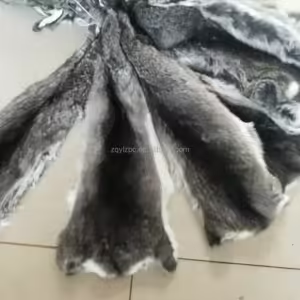Description
Looking for Alligator skin for sale? Browse our selection of high-quality alligator hides for sale, perfect for luxury goods, fashion. Shop now!
Alligator skin for sale
Real alligator leather
- Very fine exotic leather with a luxurious look
- Appreciated for its unique characteristics and high quality
- Scales size: 1cm (0,4 inch)
- Alligator scales are more uniform, more squared-off than crocodile skin
- GLOBAL SHIPPING AVAILABLE
- Ideal for creating luxury items such as wallets, handbags and clutches, watch straps, shoes, covers and other leather accessories
The price refer to one single skin and is calculated measuring the width, which determines the size and the value of the skin. Width is measured in the widest point across the body.
The Allure and Ethics of Alligator Skin: A Market Under Scrutiny
Alligator skin. The words conjure images of luxury, durability, and a touch of the exotic. For centuries, it has been prized for its unique scaled texture and versatility, finding its way into high-end handbags, wallets, belts, and even furniture upholstery. But behind the allure of these items lies a complex industry grappling with questions of sustainability, animal welfare, and ethical sourcing.
The market for alligator skin is far from simple. It operates on a global scale, with the United States, particularly Louisiana, Florida, and Texas, playing a significant role in both harvesting and farming. While legal and regulated alligator harvesting contributes positively to conservation efforts in some regions, the demand for skins undoubtedly creates a market that needs careful monitoring.
Navigating the Market: What Consumers Need to Know.
For consumers considering purchasing alligator skin products, it’s crucial to be informed and discerning. Understanding the origins of the skin, the sourcing practices employed, and the ethical certifications (if any) associated with the product is essential.
The Future of Alligator Skin: Transparency and Innovation.
The future of the alligator skin market hinges on transparency, innovation, and a continued commitment to sustainable practices. Developing and implementing more stringent welfare standards for alligator farms, investing in research to improve harvesting techniques, and promoting traceability throughout the supply chain are crucial steps.
Furthermore, exploring alternative materials that mimic the look and feel of alligator skin, while minimizing environmental and ethical concerns, offers a potential pathway towards a more sustainable and compassionate future.
Ultimately, the debate surrounding alligator skin highlights the broader challenges of balancing human desires with the need to protect animal welfare and preserve biodiversity. By promoting informed consumer choices, fostering ethical sourcing practices, and embracing innovation, we can strive towards a more responsible and sustainable relationship with the natural world.






















Reviews
There are no reviews yet.